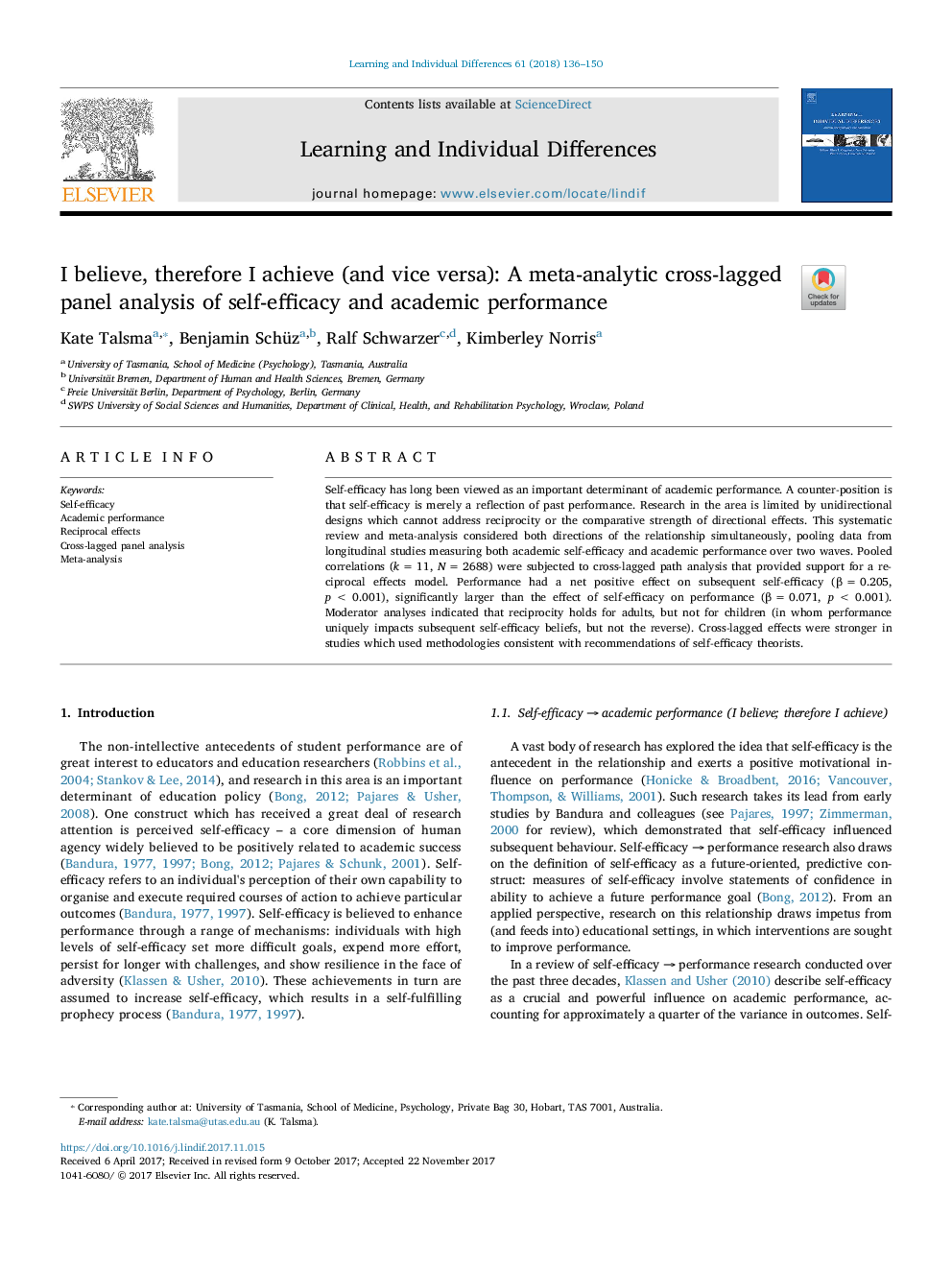ترجمه فارسی عنوان مقاله
به اعتقاد من، بنابراین (و برعکس): یک تجزیه و تحلیل پانل متاآنالیز از خودکارآمدی و عملکرد دانشگاهی
عنوان انگلیسی
I believe, therefore I achieve (and vice versa): A meta-analytic cross-lagged panel analysis of self-efficacy and academic performance
| کد مقاله | سال انتشار | تعداد صفحات مقاله انگلیسی |
|---|---|---|
| 113096 | 2018 | 15 صفحه PDF |
منبع

Publisher : Elsevier - Science Direct (الزویر - ساینس دایرکت)
Journal : Learning and Individual Differences, Volume 61, January 2018, Pages 136-150
ترجمه کلمات کلیدی
خود کارآمدی، عملکرد تحصیلی، اثرات متقابل، تجزیه و تحلیل پانل متقاطع عقب مانده، متاآنالیز،
کلمات کلیدی انگلیسی
Self-efficacy; Academic performance; Reciprocal effects; Cross-lagged panel analysis; Meta-analysis;

